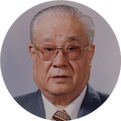
Yin deficiency is a constitutional state in Traditional Chinese Medicine (TCM), typically manifested by symptoms such as dry mouth, dry throat, heat in the palms and soles, and insomnia. These symptoms are pathological phenomena caused by the deficiency of essence (jing), blood (xue), or body fluids (jinye). In TCM, yin deficiency is a relatively complex constitutional state that requires a comprehensive consideration of an individual’s physical condition and lifestyle for proper regulation.Today, let’s learn from Dr. Mao Zhe from the Public Security Hospital:
1. Dietary Regulation
It is recommended to consume more foods that nourish yin and moisten dryness, such as green beans (lü dou), sesame (zhi ma), lotus seeds (lian zi), lily bulbs (bai he), and white fungus (yin er). These foods are rich in moisture and nutrients, which can nourish the body and alleviate symptoms of yin deficiency. Additionally, one should avoid spicy and stimulating foods, as well as tobacco and alcohol, to prevent exacerbating yin deficiency symptoms. Furthermore, some TCM herbs with yin-nourishing and dryness-moistening properties, such as goji berries (gou qi zi), rehmannia (shu di huang), and Chinese yam (shan yao), can be consumed to replenish the body and improve yin deficiency symptoms.
2. Regulating Daily Routine
Maintaining good daily habits and avoiding staying up late and excessive fatigue can help the body restore its vital energy (yuan qi) and improve symptoms of yin deficiency. Sufficient sleep and appropriate rest allow the body to recover fully, which is beneficial for alleviating yin deficiency symptoms.
3. Exercise
Exercise is also an effective method to improve symptoms of yin deficiency. Appropriate physical activity can promote metabolism and blood circulation, aiding in the alleviation of yin deficiency symptoms. One can choose mild forms of exercise, such as walking or yoga. These activities not only strengthen the body but also relax the mind and relieve stress.
4. Medicinal Nourishment
Patients with yin deficiency can regularly consume some nourishing TCM herbs or proprietary Chinese medicines, such as white fungus (yin er), bird’s nest (yan wo), and cordyceps (dong chong xia cao). For proprietary Chinese medicines, options include Zhibai Dihuang Wan (知柏地黄丸) and Liuwu Dihuang Wan (六味地黄丸).
Finally, it is important to note that yin deficiency is a relatively complex constitutional state that requires a comprehensive consideration of an individual’s physical condition and lifestyle for proper regulation. If symptoms are severe or persist for a long time, it is advisable to seek medical attention and receive professional treatment. TCM practitioners will develop a suitable treatment plan based on the individual’s specific situation to help patients improve yin deficiency symptoms and restore health.

